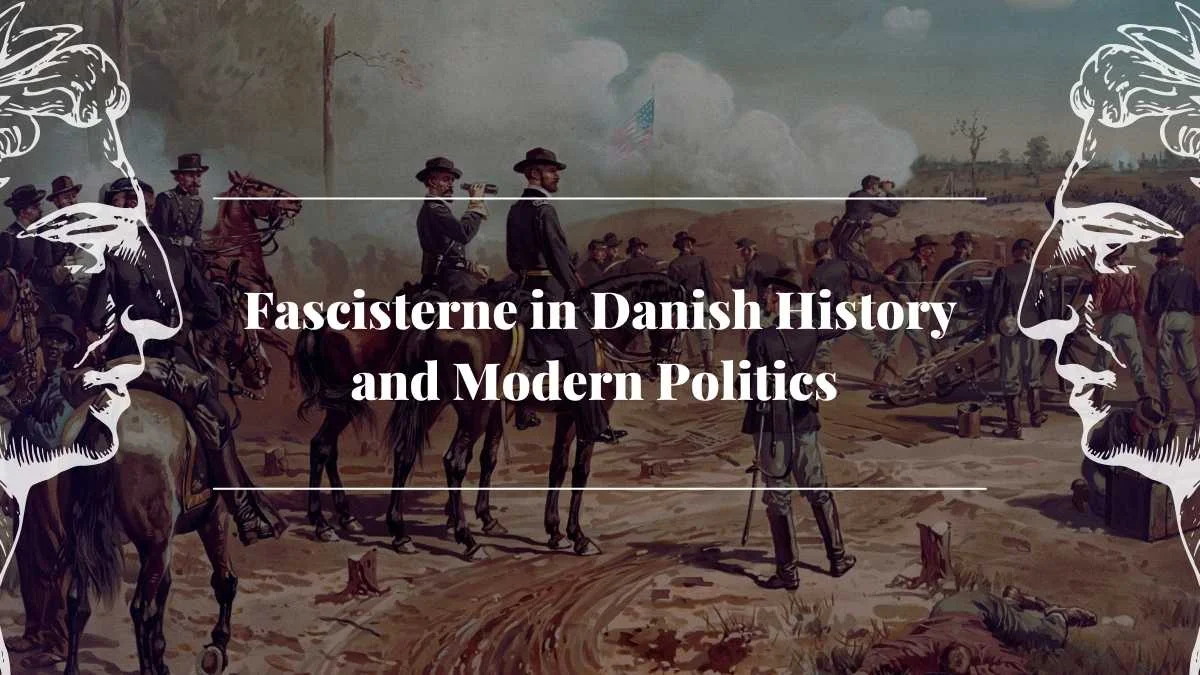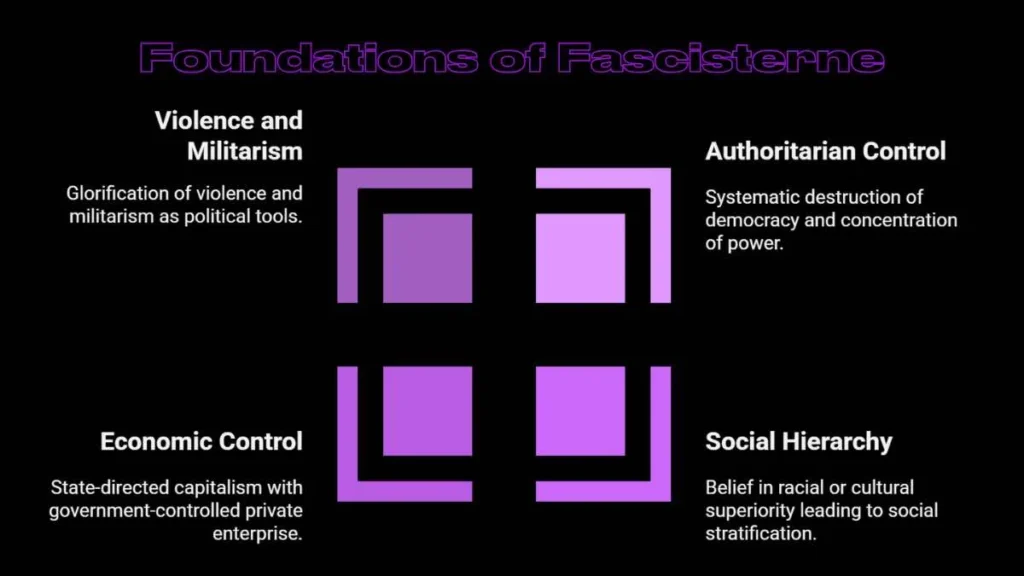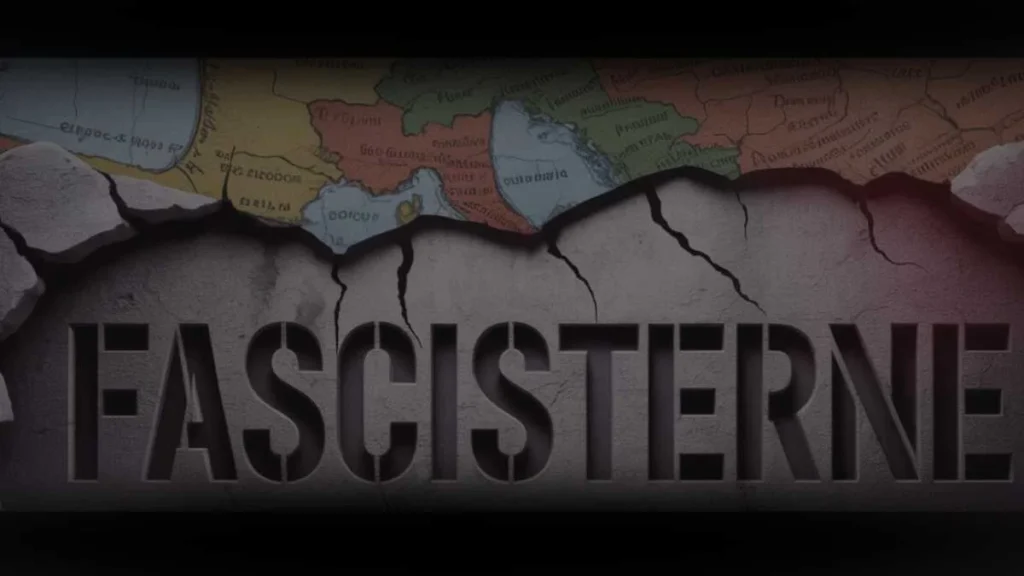EDUCATION
Truth About Fascisterne in Danish Culture & History

Fascisterne is a Danish term that translates to “the fascists” in English and refers to individuals or groups who adhere to fascist ideology. This powerful word carries significant weight in Danish society and political discourse, representing one of the most feared and reviled political movements in modern history. Fascism, as referenced by fascisterne, encompasses far-right, authoritarian political movements characterized by dictatorial power, extreme nationalism, suppression of opposition, and often the belief in racial or cultural superiority. The term serves as both a historical marker and a contemporary political tool, used to identify and critique authoritarian tendencies across different eras and contexts.
Table of Contents
Historical Origins
The term fascisterne emerged in Danish political discourse during the early 20th century, coinciding with the rise of fascist movements across Europe. Danish intellectuals and political figures adopted this terminology to describe authoritarian regimes gaining power in neighboring countries. The word became particularly prominent during the 1930s and 1940s, when Denmark witnessed firsthand the devastating effects of fascist ideology through German occupation from 1940 to 1945.
Core Characteristics of Fascism
Fascisterne has the following core characters:
Authoritarian Control Mechanisms
The fascist method entails the destruction of democratic institutions systematically and the concentration of power in the hands of one leader. Fascisterne uses propaganda, censorship, and state-controlled press to control the opinion of the masses and repress criticism.
Social and Cultural Dimensions
Other foundational beliefs encouraged by fascist movements are the ideas of racial or cultural superiority, which lead to the subsequent building of societies in a hierarchical manner that formulates imagined ethnic features. Fascisterne victimizes minority groups, intellectuals, and political opposites by scapegoating them for the problems faced by society.
Economic Control Systems
Fascisterne has state-directed capitalism in that there still exists the private enterprise, but highly controlled by the government. Economic politics facilitates the political interests with business organizations and leaders having no other alternative other than to abide by the fascist plan or suffer the outcome.
Violence and Militarism
The ideology of fascist culture glorifies violence as its norm by indicating that fascism is an effective political weapon and that militarism is virtuous. To gain political power and retain the same using intimidation means, fascisterne employ paramilitary groups, popcorn violence, and warfare tactics.

Global Fascist Movements
| Historical Period | Notable Fascisterne Examples | Key Characteristics |
| 1920s-1930s | Italian Fascist Party (Mussolini) | Extreme nationalism, militarism, and corporate state |
| 1930s-1940s | Nazi Party (Hitler) | Racial supremacy, totalitarianism, genocide |
| 1930s-1970s | Spanish Falange (Franco) | Catholic authoritarianism, anti-communism |
| Modern Era | Various neo-fascist groups | Digital propaganda, populist rhetoric, xenophobia |
Danish Resistance
- Underground Networks: Danish resistance fighters extensively used the term fascisterne in clandestine communications and propaganda materials
- Cultural Preservation: The term helped maintain Danish cultural identity during the occupation period
- Post-War Memory: Fascisterne became integral to collective memory and historical education
- Political Legitimacy: The term provided moral authority for democratic institutions in post-war Denmark
Political Implications
- Democratic Vigilance: The term fascisterne serves as a constant reminder of the fragility of democratic institutions and the need for active citizen participation in protecting democratic values.
- International Relations: Denmark’s understanding of fascism influences its foreign policy approach, particularly regarding human rights, international law, and multilateral cooperation.
- Educational Framework: Danish schools use the concept of fascisterne to teach students about the importance of democratic participation and the dangers of authoritarianism.
- Media Responsibility: Danish journalists employ the term fascisterne carefully, recognizing its historical weight and potential impact on public discourse.
International Perspective
The experience of Denmark is part of a wider international debate on authoritarianism, human rights, and the way democracies are governed. The Danish model of resistance and recovery teaches lessons to other countries that have the same issues. The Danish ways of handling fascisterne are investigated by international scholars and policymakers as a model of successful democratic resilience, whereas Denmark is committed to human rights and democratic principles, which are converted into the international activities of stopping authoritarianism and defending vulnerable people.

Modern Applications
Fascisterne is still used in the modern setting of Danish politics with current apprehensions of dictatorial tendencies in contemporary politics. Since the early 2000s, the term has been used mostly in immigration-, nationalism- and institution-related political controversies, most often used to describe groups of people or individuals said to be engaging in extreme right-wing ideologies. It is used by Danish politicians, journalists, and academics who tend to make parallels between the past fascist movements and political phenomena that can be identified today and have certain similarities with them.
Conclusion
Fascisterne is much more than merely a Danish version of the word fascists. This, instead, is a highly complicated, culture-related and political term, which lingers to define the Danish society. The history behind the popularization of the term, which initially referred to historical fascist movements and today is used as an analytical instrument of political study due to its popularity among political analysts of the past, reflects the stability of historical memory in a democratic society.
In the changing global political environments, the Danish concept of fascisterne is therefore very essential in the global struggles to defend democracy and other human rights.
-

 FRIENDSHIP MESSAGES3 months ago
FRIENDSHIP MESSAGES3 months ago100+ Heart Touching Sorry Messages for Friends
-

 ANNIVERSARY WISHES7 months ago
ANNIVERSARY WISHES7 months ago100+ Beautiful Engagement Anniversary Wishes Messages and Quotes
-

 BIRTHDAY WISHES7 months ago
BIRTHDAY WISHES7 months ago300+ Happy Birthday Wishes for Brother | Heart Touching Happy Birthday Brother
-

 BIRTHDAY WISHES7 months ago
BIRTHDAY WISHES7 months ago200+ Unique Birthday Wishes for Your Best Friend to Impress on Their Big Day




















